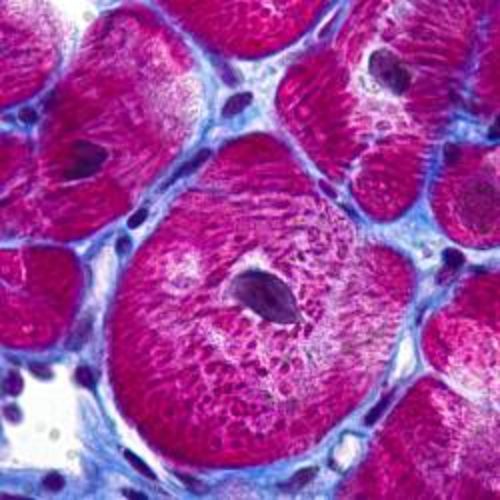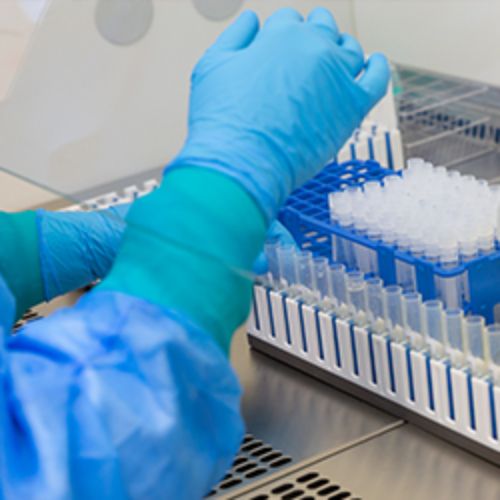Cardiovascular Diseases
"We seek to move toward the application of personalized medicine in the diagnosis and treatment of cardiovascular disease."
DR. ARANTXA GONZÁLEZ MIQUEO DIRECTOR. CARDIOVASCULAR DISEASE RESEARCH PROGRAM
Cardiovascular diseases are the leading cause of death and hospitalization in western countries and, in particular, in Spain.
In the Cardiovascular Diseases Program of the Cima Universidad de Navarra we focus on the study of the most prevalent cardiac pathologies such as chronic heart failure and atrial fibrillation.
The research team is multidisciplinary and includes both basic and clinical researchers as a result of the close collaboration with the physicians of the Clínica Universidad de Navarra. The projects developed in our Program have a clear translational objective aimed at personalizing risk stratification, prevention, and therapeutic management of patients, allowing the implementation of precision medicine strategies in the cardiovascular field.
Our researchers have a long professional career, internationally recognized, in the study of these pathologies. The Program is integrated in the Institute of Health Research of Navarra (IdiSNA) and is part of the Cardiovascular Biomedical Research Center Network (CIBERCV), funded by the Carlos III Institute of Health. It also participates in several multinational research consortiums within the European Union research programs.
It also develops joint research projects with academic centers and biotechnology and pharmaceutical companies, both national and from other European countries and the United States.

Need more information?
If you are interested in learning more about our research, please contact us.
Cardiovascular Disease Program Objectives
To understand the mechanisms by which the endocardium and the ventricular and atrial myocardium and arterial wall are damaged in processes leading to heart failure, atrial fibrillation or stroke.
To establish bioprofiles of non-invasive biomarkers (molecular, proteomic, imaging) that help in the early detection of lesions caused by these mechanisms and that have diagnostic and preventive utility in the aforementioned processes.
To identify new therapeutic targets related to the mechanisms involved and thus design new drugs for more effective treatment of heart failure and cardiac and cerebral ischemic events.
CUTTING-EDGE RESEARCH
New biomarkers
Our research program has identified and validated circulating biomarkers, easily detectable in blood, that provide information on the mechanisms involved in the pathology, allowing a better assessment of the risk to which patients are exposed and allowing the implementation of specific therapies directed towards these specific mechanisms.
Our research groups
Our program is organized in two groups focused on the study of heart and blood vessel alterations.

Heart Failure
Focused on the analysis of the pathophysiological mechanisms involved in the development of heart failure, the identification of biomarkers with diagnostic and prognostic utility and the establishment of personalized therapies based on the predominant alterations in each patient.
FROM THE LABORATORY DIRECTLY TO THE CLINIC
Cutting-edge translational research
With an eminently translational approach, we work in close collaboration with clinical researchers at the Universidad de Navarra Clinic itself and at other prestigious national and international centers to respond to unresolved medical needs in this field.

Advances in pathophysiological knowledge
Access to biological samples from patients (cardiac and vascular biopsies, thrombi and blood) puts us in a privileged position to identify key mechanisms relevant to human pathology.

Non-invasive circulating biomarkers
Identification of detectable molecules in blood in a simple, reproducible and cost-effective manner to enable better risk stratification, more accurate therapeutic choice and monitoring of treatment effectiveness.

Development of new drugs
We have licensed a compound capable of inhibiting matrix metalloproteinases that is in clinical development.

Would you like to help us?
Thanks to the generosity of many people, the Cima Universidad de Navarra is a reality that strives to offer therapeutic solutions to achieve personalized medicine for patients.
Scientific activity of the
Cardiovascular Diseases Research Program
Latest scientific publications
- Biomarkers in heart failure clinical trials. A review from the Biomarkers Working Group of the Heart Failure Association of the European Society of Cardiology Oct 24, 2023 | Magazine: European Journal of Heart Failure
- Predicting long-term disease control in transplant-ineligible patients with multiple myeloma: impact of an MGUS-like signature Jan 11, 2023 | Magazine: Journal of the American College of Cardiology: Heart Failure
- ADAMTSL3 knock-out mice develop cardiac dysfunction and dilatation with increased transforming growth factor beta signalling after pressure overload Dec 20, 2022 | Magazine: Communications Biology
- Impact analysis of heart failure across European countries: an ESC-HFA position paper Oct 9, 2022, | Magazine: ESC Heart Failure